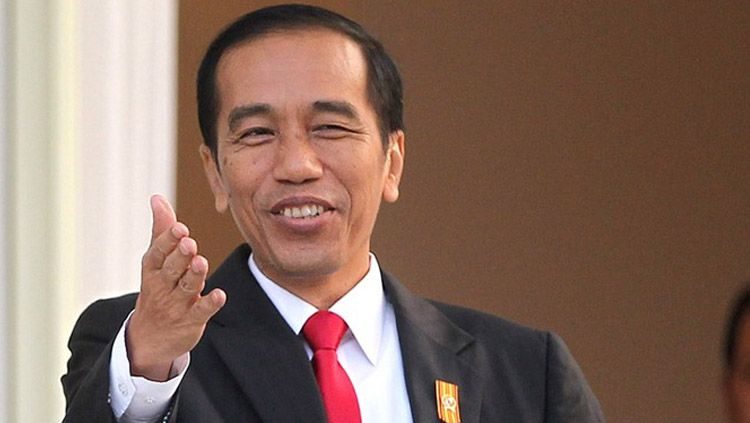Achievement of Effectiveness Domestic Economy in Jokowi’s Era
by: Aman Sahab
His vision in Nawa Cita, President Jokowi declared to focus on building sovereign agriculture and humanizing farmers. In the seventh agenda, Nawa Cita stated “Creating Economic Independence by Mobilizing Strategic Domestic Economic Sectors, focuses on efforts to realize Food Sovereignty and Farmer Welfare”. This form of seriousness, President Jokowi reiterated in front of regional heads in Jakarta, on August 4. “Regions must focus on managing their potential completely from upstream to downstream. Don’t want to do everything but nothing is finished. ”
No doubt, the Government has now “declared” resistance to the practice of food cartels that have been proven to impoverish farmers while at the same time harming consumers.
Regarding the performance of food import exports through a breakthrough in the era of Jokowi’s agricultural development policy, certainly there is no doubt the results obtained. On October 17, 2016, BPS released several strategic data on trade data and the development of the rupiah. The data reveals that the Ministry of Agriculture’s strategic policies and programs have been on the track in increasing exports and reducing imports. September 2016 non-oil and gas exports reached US $ 11.45 billion, up 2.85 percent compared to September 2015. Non-oil and gas imports in September reached US $ 9.55 billion, up 0.95 percent compared to September 2015. Non-oil and gas goods were like plantation products, agriculture, animal husbandry, fisheries and mining products that are not oil and gas.
It must be admitted that the achievements of the non-oil and gas exports above were a major contribution to the achievement of two-year development at Jokowi-JK government agricultural sector. BPS data says food production in 2017 has increased compared to previous years. Based on BPS data, the production of 75.36 million tons of GKG rose 6.37 percent compared to 2014 which was only 70.84 million tons. Rice production in 2016 also increased by 79.35 million tons and in 2017 there was also an increase of 81.16 million tons, an increase of 14.42%. The increase also occurred in corn commodities which in 2017 was 29.86 million tons and rose 52.17% compared to 2014. Commodity production of shallots in 2017 reached 1.47 million tons and increased by 18.79% compared to 2014. While the production of chili commodities in 2017 it reached 2.38 million tons and increased by 27.09% compared to 2014. Similarly, the field of animal protein has increased. Beef production in 2017 reached 531.8 thousand tons and increased 6.85% compared to 2014. Chicken meat production also increased to 2.26 million tons in 2017 and increased by 16.40% compared to 2014. Egg production increased to 2.11 million tons in 2017 and increased by 20.21% compared to 2014.
One other progress can be seen from the results of a study released annually by The Economist Intelligence Unit (EIU). In that study, the Global Food Security Index (GFS) in Indonesia continued to improve compared to previous years. Of the 113 countries studied, in 2017 Indonesia ranked 69th with a score of 51.3 and up 0.2 points compared to 2016 which was 71st with a score of 51.1. In the Jokowi-JK era, at least 210 agricultural regulations have been lifted. The procurement of tender patterns was changed to direct appointment so that the provision of production facilities became fast and smooth. Rehabilitation of 3.5 million hectares of irrigation water infrastructure, paddy field printing and optimization of more than 1.0 million hectares of land, massive mechanization of more than 300,000 units, rapidly developing seed technology, agricultural insurance of 1 million hectares per year, and other strategic programs. The results are very real, before farmers often complained about seeds, fertilizers, water and others, now it was relatively reduced even without complaints.
Gross Domestic Growth (GDP) in the agricultural sector in 2017-2018 rose to 4.41 percent. This achievement occurs because some commodities are self-sufficient or no longer import. The import of rice in 2018 is not due to a lack of production, but sufficient production, which is proof that as long as imported rice has not yet been released in warehouses and during Ramadan until now the price is stable. Now Inflation is maintained, farmers are profitable and consumers smile. Not only that, quantitatively, agricultural performance can be seen from the value of 2017 production of Rp 1.344 trillion or an increase of Rp 350 trillion from 2012. Now, in 2018, the population is 265 million or an increase of 12.8 million from 2014. The increase in population is certainly requires an additional 1.7 million tons of rice.
Jokowi’s efforts to achieve the food revolution certainly cannot be underestimated. Through Jokowi’s performance, increasing effectiveness in the food sector is no longer a myth but something that can be realized. However, the community must also try to realize food self-sufficiency, increase food production and support the export of food and national food commodities. There is no doubt to make our current President to continue his performance which is reaping a lot of success. At least, the community can try through vote support in the 2019 Presidential Election.
*)The Author is Students of University of Muhammadiyah Malang
